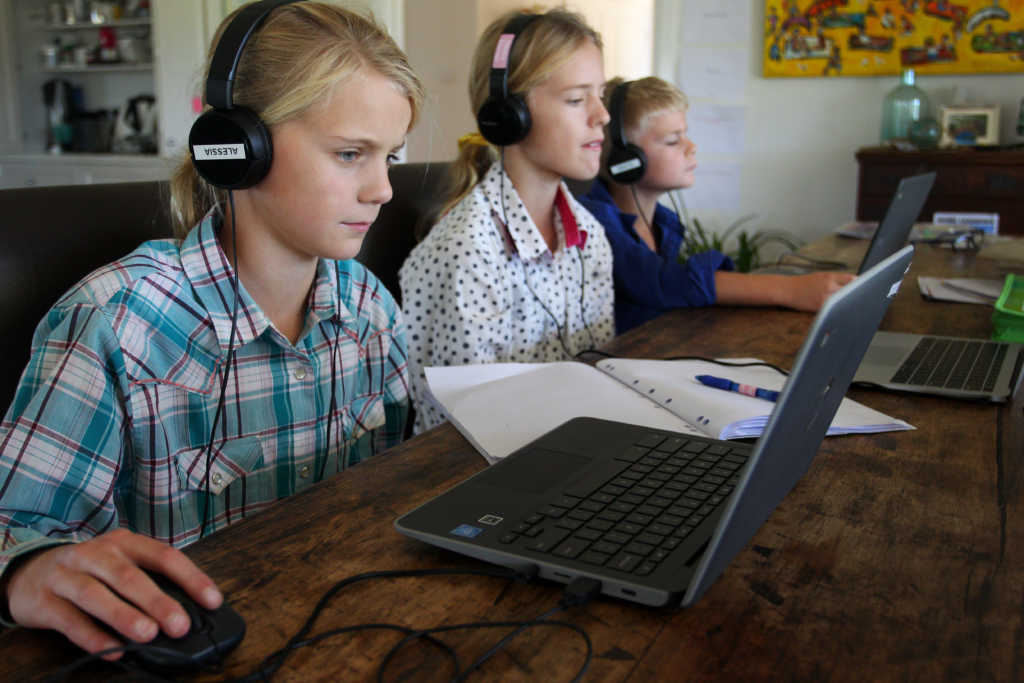As many schools across the country prepare to reopen this year, the number of parents opting to homeschool their children has surged in the wake of COVID-19 school lockdowns.
HEAR THIS STORY ON TODAY’S PODCAST:
Some want their kids to learn from a faith-based curriculum while others believe their local schools have problems.
A common theme for a number of parents is that their kids performed well while homeschooling and they don’t want to change that.
Yvonne Bunn, director of homeschool support and government affairs with Home Educators Association of Virginia, told CBN News they had to increase their staff in order to answer the spike in questions from parents.
“These parents have been extremely engaged,” she said. “They’re coming to webinars and seminars. They call with questions about how to start homeschooling, how to comply with the law, and where to get the curriculum.”
She added, “In Virginia alone, we have seen over a 48 percent increase in homeschoolers for the last school year. We went from 44,000 to 65,000 homeschoolers,” she said. “Lots of parents have done this and say their child has done so much better or they’re not being bullied.”
And Bunn noted that parents who work from home are eager to keep their kids in homeschooling.
“I do think a lot of parents are going to continue homeschool. They’re not happy with what’s going on,” she said. “Parents are wanting to move in the direction of doing something else … even the parents who work. We’ve been amazed by the number who want to continue to work from home so they can continue to teach their children.”
Although many children were temporarily taught at home because of school shutdowns, homeschooling is actually different from the virtual learning many families experienced over the last year.
A U.S. Census Bureau report found that homeschooling doubled during COVID, including a jump in Black families switching to home education for the first time.
The surge was reported in March, revealing that the rate of families homeschooling their children increased to 11 percent by September 2020, doubling from 5.4 percent six months earlier.
And Black households saw the largest boost with homeschooling as the rate went from 3.3 percent in the spring of 2020 to 16.1 percent in the fall.
Joyce Burges, co-founder and program director of National Black Home Educators, said the organization had nearly 5,000 members before the pandemic and now has more than 35,000.
Burges explained that some families had experienced challenges, including lack of internet access or they were disappointed with the learning material. This impacted their children’s learning capacity virtually.
“It got so they didn’t trust anything but their own homes, and their children being with them,” she said. “Now they’re seeing the future – seeing what their children can do.”
For some families, the shift to homeschooling was motivated by their children’s specific needs.
Heather Pray of Phoenix, Maryland, said this is the best option for her 7-year-old son, Jackson, who has autism. They made the change when Jackson was having trouble with the online classes his school offered during the pandemic.
“My son did great (with homeschooling), even with just two hours of schoolwork a day,” Pray said. “I got him into piano lessons, taught him to read.”
Pray will also begin to homeschool her daughter, who had been attending a Christian school.
“I had no idea how this was going to go … I just dove in headfirst,” she explained. “I felt God was holding my hand.”
And Jennifer Gonzalez from Appomattox, Virginia chose to homeschool her three sons, ages 9, 13 and 15, after their Catholic school in Lynchburg closed last year because of a decrease in enrollment.
“My kids have just excelled,” she said. “We’re able to be home and be together.”
As parents across the country sort through the educational options for their children, one silver lining for those who select homeschooling is more time to explore what their kids are learning.


